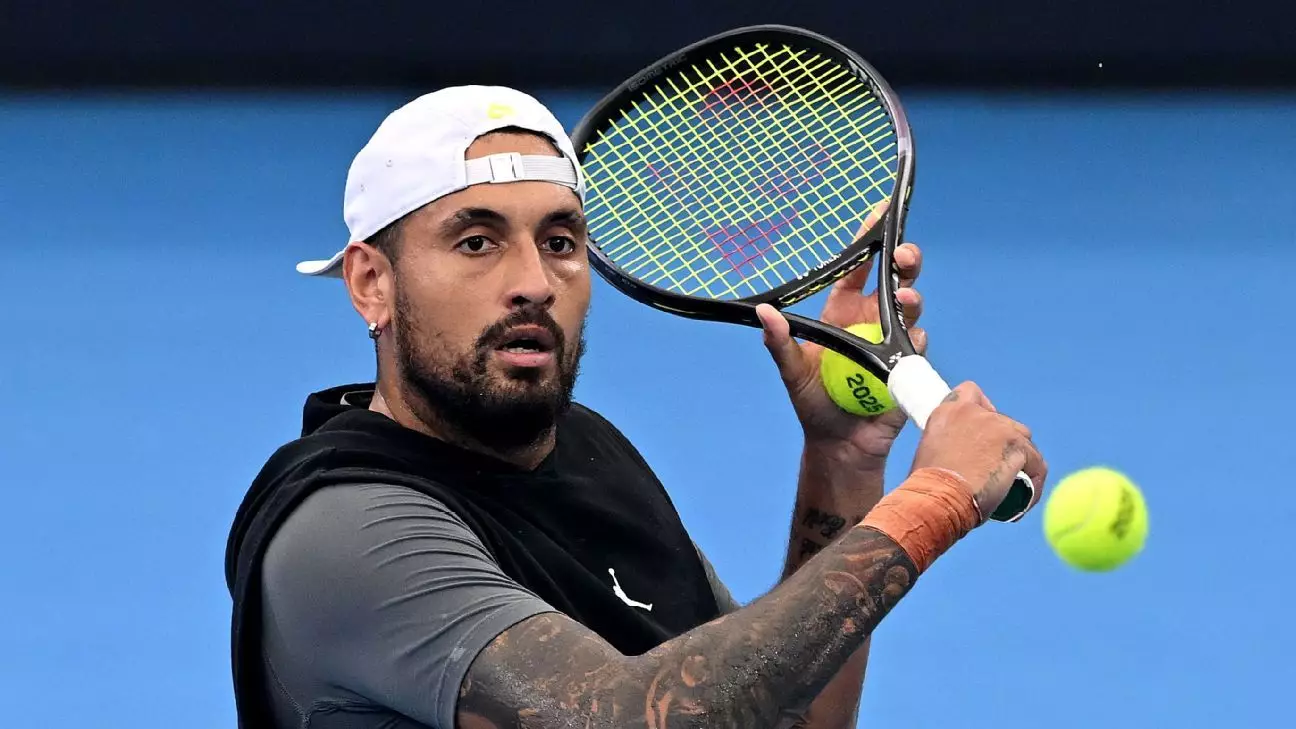Integrity in Tennis Kyrgios Takes a Stand Against Doping
Hey there, fellow tennis enthusiast! Today, we’re diving into a topic that’s been making waves in the tennis world: integrity and doping. If you’ve been following the sport lately, you might have heard about Nick Kyrgios’s bold stance on anti-doping practices. As an athlete who’s no stranger to controversy, Kyrgios is bringing attention to something that affects every player on the court—fairness and ethics.
I remember watching Nick Kyrgios play for the first time; his energy and passion were palpable through the screen. Beyond his fiery persona, there’s a genuine concern for the integrity of tennis, which he’s not afraid to voice. Recently, his remarks about doping violations involving top players like Jannik Sinner and Iga Swiatek have stirred discussions about ethics in sports. It’s a reminder of how important it is to maintain trust in this beautiful game we all love.
As we explore this issue, let’s consider what it means for athletes to uphold their responsibilities both on and off the court. Kyrgios’s outspoken nature has sparked a much-needed debate on accountability within professional tennis. Join me as we unpack his perspective and examine what it means for the future of the sport.
Key Takeaways
- Nick Kyrgios’s comments highlight the need for accountability in tennis.
- Doping allegations against top players affect public trust in the sport.
- The importance of team dynamics and athlete responsibility cannot be overstated.
The Impact of Doping Violations
Recently, Nick Kyrgios did not hold back when addressing doping violations by Jannik Sinner and Iga Swiatek. During a press conference at the Brisbane International, he described their actions as “disgusting.” These incidents have brought to light significant concerns about how such breaches damage tennis’s reputation. With Sinner and Swiatek both having faced bans due to doping infractions, it’s clear that these issues are not just personal but extend to the entire sport’s credibility.

Kyrgios’s comments reflect a growing frustration within the tennis community regarding maintaining integrity among its athletes. When players at the top of their game engage in doping, it sends a troubling message to fans and aspiring players alike. The fact that these athletes once held the title of world number one makes the situation even more serious, threatening to erode trust in one of the most revered sports globally.
Kyrgios’s Personal Perspective
Nick Kyrgios, who has been recovering from injuries since mid-2023, has been vocal about his thoughts on doping. He believes that athletes who resort to performance-enhancing drugs undermine the hard work and sacrifices made by others who compete honestly. Drawing from his own struggles with injury recovery, Kyrgios emphasizes that taking shortcuts dishonors both the sport and its dedicated players.
Kyrgios’s experience with injuries gives him a unique perspective on why some might be tempted to use banned substances. However, he stands firm in his belief that overcoming obstacles naturally is part of what makes sportsmanship admirable. His advocacy for clean sports highlights his commitment to preserving what he believes is essential for tennis: fair competition based solely on talent and perseverance.
The Role of Athlete Support Systems
Turning our attention to Jannik Sinner’s situation, there’s a lot to unpack about accountability within athlete support systems. Sinner claimed his positive test results stemmed from contamination by his physiotherapist. However, Kyrgios’s skepticism regarding this explanation sheds light on potential gaps in oversight among elite athletes’ teams. He questions why Sinner’s team didn’t address contamination issues sooner, suggesting an unacceptable level of negligence in high-stakes sports environments.

Athletes invest heavily in their teams, trusting them with aspects crucial to their careers and reputations. As Kyrgios pointed out, any lapses could jeopardize not just individual careers but also tarnish the sport’s image overall. This incident underscores how vital it is for players to ensure their support networks uphold high standards of professionalism and vigilance at all times.
Advocating for Transparency
Kyrgios doesn’t shy away from expressing his opinions on sensitive matters like doping—an approach that sometimes invites criticism. Yet he remains steadfast in advocating for transparency within sports governance. By speaking up against malpractice, he encourages others within tennis to engage with difficult topics rather than ignore them. For Kyrgios, addressing these issues is crucial if we hope to preserve authenticity and fairness in competitive play.
His call for more voices championing honesty echoes an urgent need across athletic communities worldwide: fostering environments where ethical conduct is non-negotiable becomes paramount when striving towards excellence without compromising principles along the way.
Final Thoughts
Nick Kyrgios’s bold stance against doping resonates deeply amidst ongoing conversations about ethics in sports today—a testament not only reflecting personal convictions but also representing broader concerns shared by many enthusiasts globally invested passionately into this beloved discipline themselves too! Through advocating openly around transparency while voicing frustrations candidly regarding current shortcomings faced collectively together alongside fellow peers alike equally committed towards safeguarding integrity long-term—Kyrigos inspires us all strive relentlessly higher standards ensuring legacy remains untarnished generations follow suit thereafter confidently knowing they’ve done utmost best possible achieve greatness honorably ethically unyieldingly above reproach eternally cherished valued universally respected admired admired celebrated triumphantly victorious enduringly enduringly victorious!
tennis
integrity
doping
Nick Kyrgios


Leave a Reply